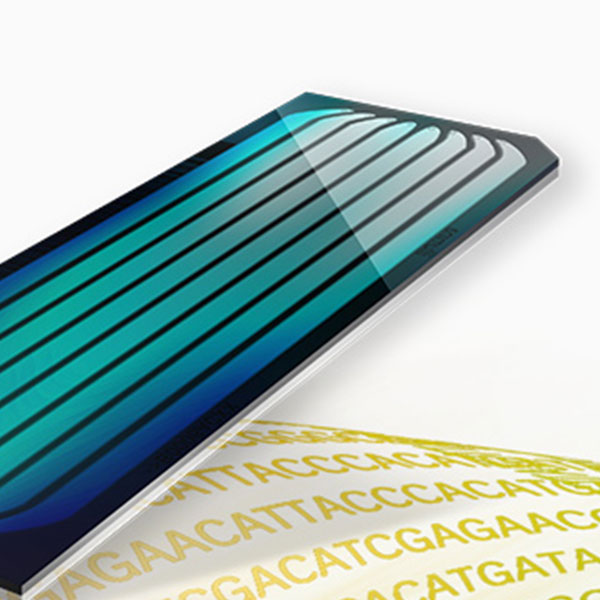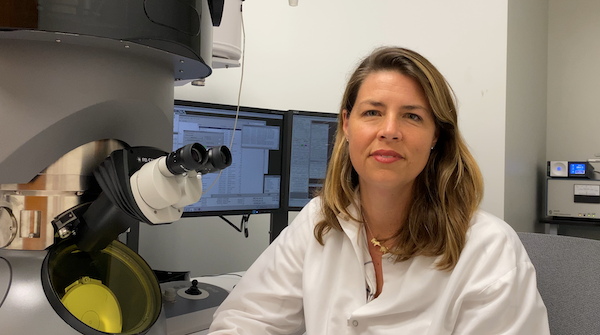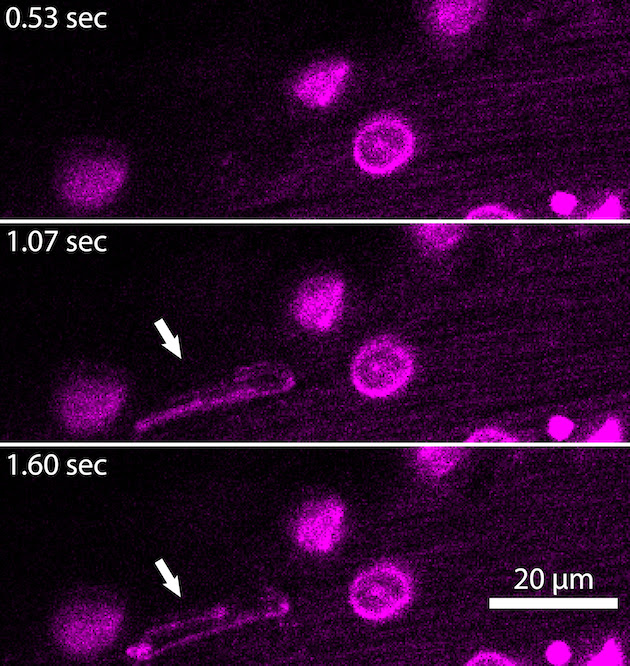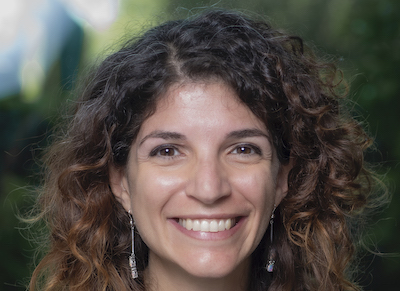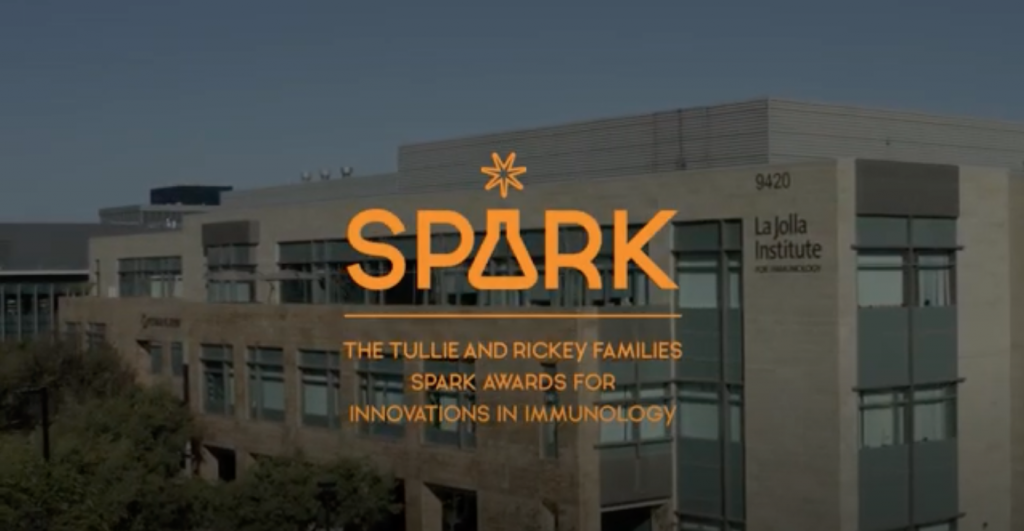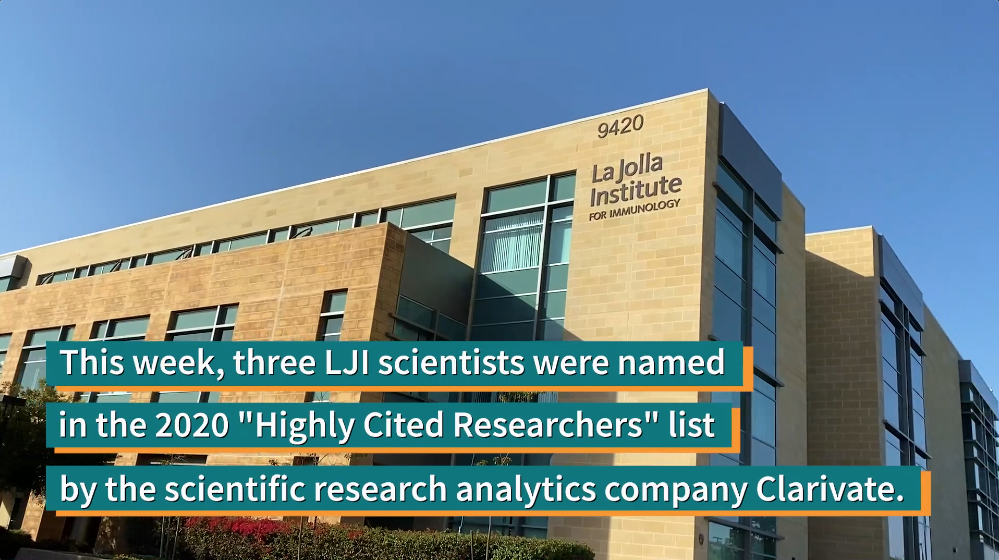LATEST NEWS
- Institute News
New two-dollar screen proves fast, simple and accurate
- Research News
LJI scientists track down control elements that govern gene expression from a distance
- Institute News
Award recognizes Saphire's leadership in global effort against COVID-19
- Research News
LJI scientists get first glimpse of how mysterious particles break off of immune cells
- Institute News
New award from the Embassy of Italy honors an Italian scientist making breakthroughs in a global crisis
- In the News
Scientists who aren’t virologists or vaccinologists can still make crucial contributions to the global effort to battle SARS-CoV-2.
- Videos
Hear from Deputy Director of Advancement Kelsey Dale about the La Jolla Institute’s Tullie and Rickey Families SPARK Awards program.
- In the News
After infection or vaccination immunity to the virus may be long lasting
- Institute News
LJI Professors Shane Crotty, Ph.D., Bjoern Peters, Ph.D., and Alessandro Sette, Dr. Biol. Sci., were named “Highly Cited Researchers” this week by Clarivate.
- In the News
A year of scientific uncertainty is over. Two vaccines look like they will work, and more should follow.
- In the News
Blood samples from recovered patients suggest a powerful, long-lasting immune response, researchers reported.
- In the News
Immunity to the novel coronavirus may last eight months or longer, according to a new study authored by respected scientists at leading labs, which found that individuals who recovered from the coronavirus developed “robust” levels of B cells and T cells (necessary for fighting off the virus) and “these cells may persist in the body for a very, very long time.”
